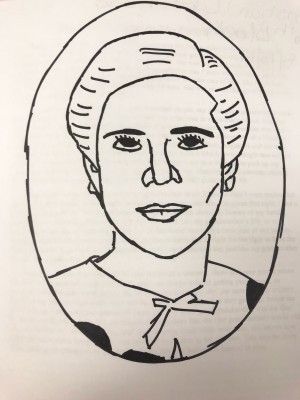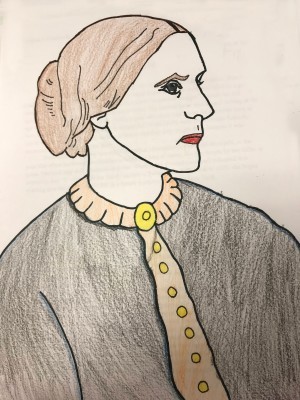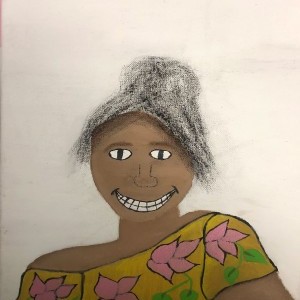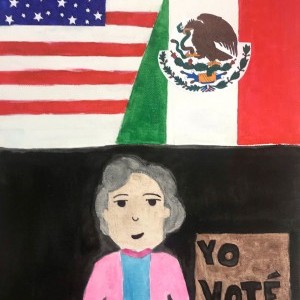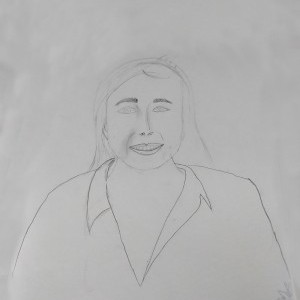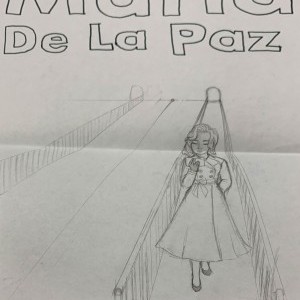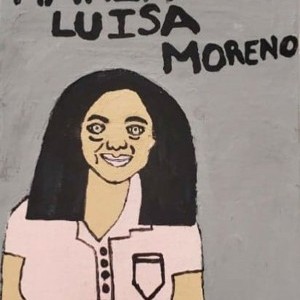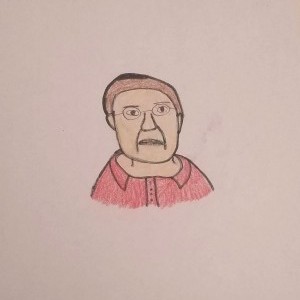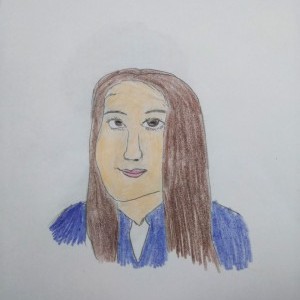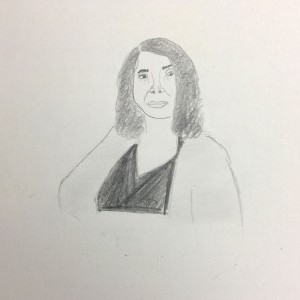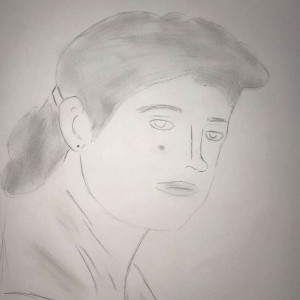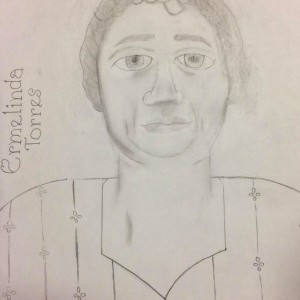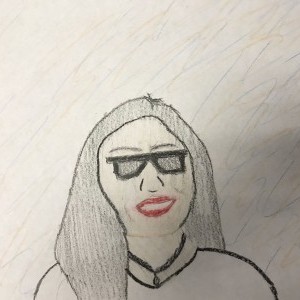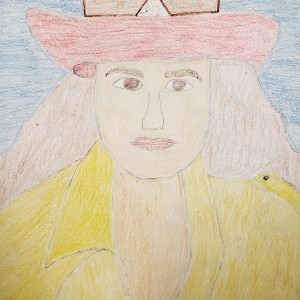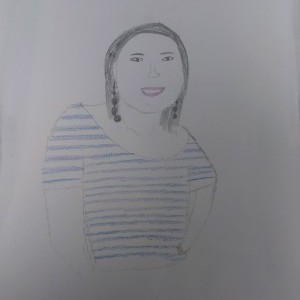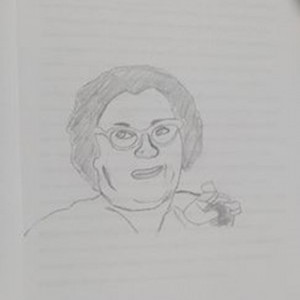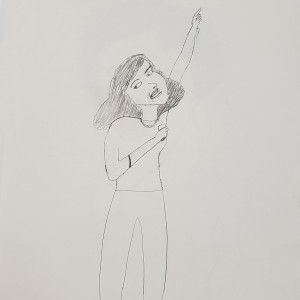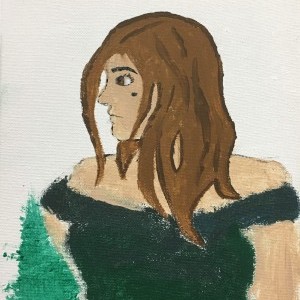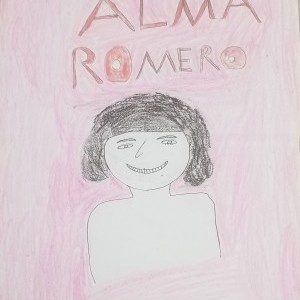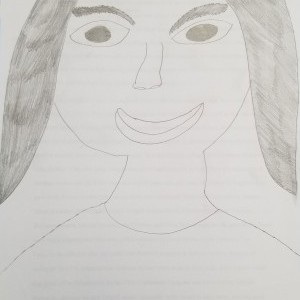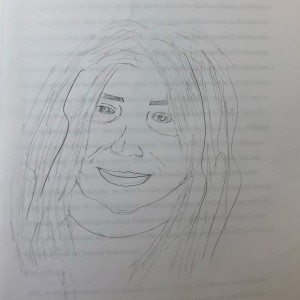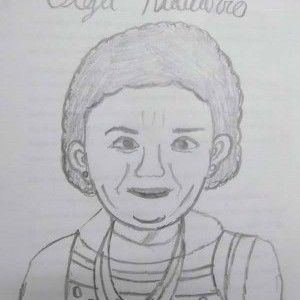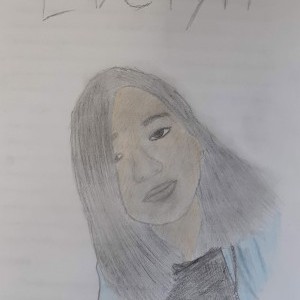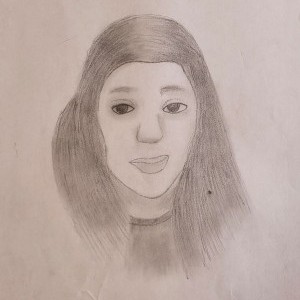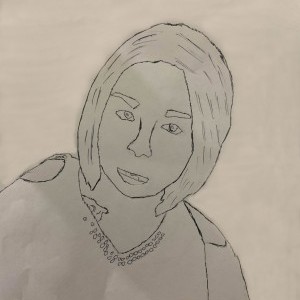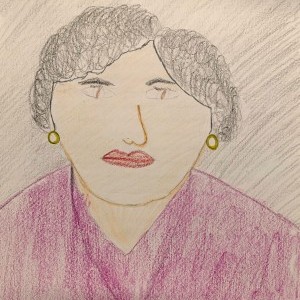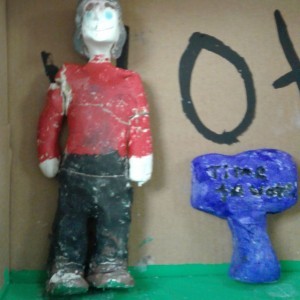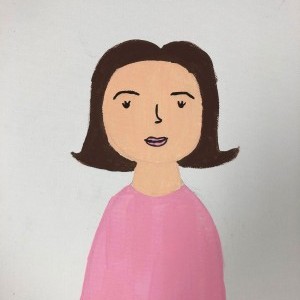Cristian Castaneda
García Early College High School | Laredo, TX | 10th Grade
Inspirational Family Member
My Great-Great-Grandmother
I spoke with my grandmother to find out who was the first woman in our family to be able to vote. The first woman in my family to vote was my great-great-grandmother. Her name was Guadalupe Perales-Martínez and she was born in 1883. She was my grandmother’s father’s maternal aunt who adopted him when my great-grandfather was 5 days old. Her sister died from childbirth complications and her widowed husband could not take care of him. She might have been born in Nuevo Laredo, but we do not know for sure. She was around the age of thirty-seven when the Voting Act was passed in 1920.
My great-great-grandparents were very educated people, my great-great-grandmother was a boarding student at the original Holding Institute since she was in elementary school. She was also orphaned at a very young age and because of a lack of a permanent caregiver, she was sent to Holding by her aunt and uncle. She spoke fluent English (which was uncommon for a Hispanic woman at the time) as well as Spanish. She was an avid reader of both languages and loved to sing. She was raised Catholic but knew many Protestant hymns which were taught and sung at Holding’s. My grandmother remembers going in her father’s car as a little girl to pick up my great-great-grandparents to take them to vote on election day. They became American citizens before 1946 when my grandmother was born. She died in 1982 at the age of 99.
What an interesting life my great-great-grandmother lived, I bet she didn’t even realize that she was the first woman in her family to vote, at least at the time she was given that right. I had a great time sitting down with my grandmother and conversing about the history of my family. Luckily my great-great-grandmother was still alive well into my grandmother’s life, so my grandmother had lots of memories of her, I was fascinated that such a basic part of our society, voting, used to be a huge privilege and that women actually had to fight for the right to have the same say as men. I go with my grandparents to vote every election day just like my grandmother did with her grandmother.
Voting is such an important part of who we are as a country. There are some places where you aren’t even allowed to talk bad about who’s in charge without getting punishment, so knowing that eventually I will have a say in who gets to run my city, my state, and my country, and knowing that my sister and cousin will have that same right when they grow up, makes me proud that the Voting Act was passed 99 years ago. My great-great-grandmother was the first woman in my family to vote. My grandmother remembers that she (her grandmother) would only vote on election day, no early voting, and that she even voted while bedridden, this shows how much she cared about being able to vote after not being able to for 19 years. This was the story of my great-great-grandmother and how hard her life was before she learned to vote.
Historical Figure I Admire
Susan B. Anthony
EARLY LIFE –
Susan B. Anthony was born on February 18, 1820, in Adams, Massachusetts. Born into a Quaker household, Anthony believed all were equal under God. She used this belief as a guide through her entire life. She would later go on to drop “organized religion”, declare herself agnostic, but kept many principles of Quaker belief. She learned basic reading and writing at the age of three, as was customary in the 1800s, higher education was meant for the white men of New England only. The only education women had in the 1800s were from Dames Schools, which taught basic reading and writing at home, and they only taught them because it was necessary for the reading of the Bible.
Nevertheless, Anthony was a driven student, determined to learn all she could, to the point that when her school decided not to teach her long division, she was taught by her father at home. She was very well educated, in a time where being a woman and well educated was extremely rare. Twenty years after her family moved to Battensville, New York in 1826, she began working as a teacher in 1846-1849 in a female academy in upstate New York.
WOMEN’S SUFFRAGE, TEMPERANCE, and ABOLITION –
Anthony settled back in her family home, now close to Rochester, New York. That is where she met many leading abolitionists including William Lloyd Garrison, William Henry Channing, Wendell Phillips, Parker Pillsbury, and Frederick Douglass. Soon the temperance movement gained her attention and, after meeting Amelia Bloomer and Elizabeth Cady Stanton, so did the topic of women’s suffrage.
The retaliation of Anthony’s attempt to speak at a temperance meeting in Albany in the 1850s made her organize the Woman’s New York State Temperance Society; Stanton became the president of that organization, and she pushed Anthony farther in the direction of women’s rights advocacy. In a while, she became known as one of women’s rights most serious advocates, and as a tireless worker whose personality was the exact opposite of her friend Stanton. She was a prime target of public and newspaper. While she was campaigning for a liberalization of New York’s laws regarding married women’s property rights, which was ended and attained in 1860, she served from 1856 as chief New York agent of Garrison’s American Anti-Slavery Society. During the early phase of the Civil War she organized the Women’s Loyal League, which called for emancipation. In 1872 she got arrested for trying to vote. She was tried and got fined $100 for the crime. This made people angry and brought the matter national attention to the suffrage movement. In 1876, she led a protest at the 1876 Centennial of our nation’s independence. She gave the speech, Declaration of Rights, written by Stanton and another important suffragist, Matilda Joslyn Gage.
DEATH AND LEGACY –
As we can see, Anthony spent all of her life working and fighting for women’s rights. In 1888, she helped to merge the largest organizations for suffrage into one, the National American Women’s Suffrage Association. She headed the group for 12 years until 1900. She went around the country saying speeches, and getting thousands of signatures on different petitions. Anthony died in 1906, 14 years before women were given the right to vote in 1920 with the passing of the 19th amendment.
What the Project Means to Me
Voting is such an important part of who we are as a country. There are some places where you aren’t even allowed to talk bad about who’s in charge without getting punishment, so knowing that eventually I will have a say in who gets to run my city, my state, and my country, and knowing that my sister and cousin will have that same right when they grow up, makes me proud that the Voting Act was passed 99 years ago. My great-great-grandmother was the first woman in my family to vote. My grandmother remembers that she (her grandmother) would only vote on election day, no early voting, and that she even voted while bedridden, this shows how much she cared about being able to vote after not being able to for 19 years. I hope to be that dedicated one day.
Explore the Archive
More From This Class
Click on the thumbnails below to view each student's work.Deadline Extended
There's still time to join Women Leading the Way.
Become a part of our storytelling archive. Enroll your class today.
Join the Project

